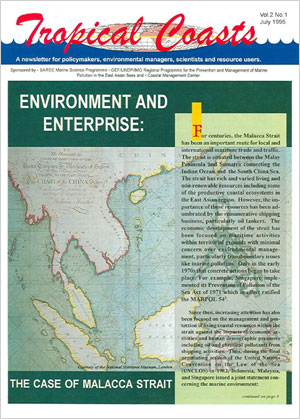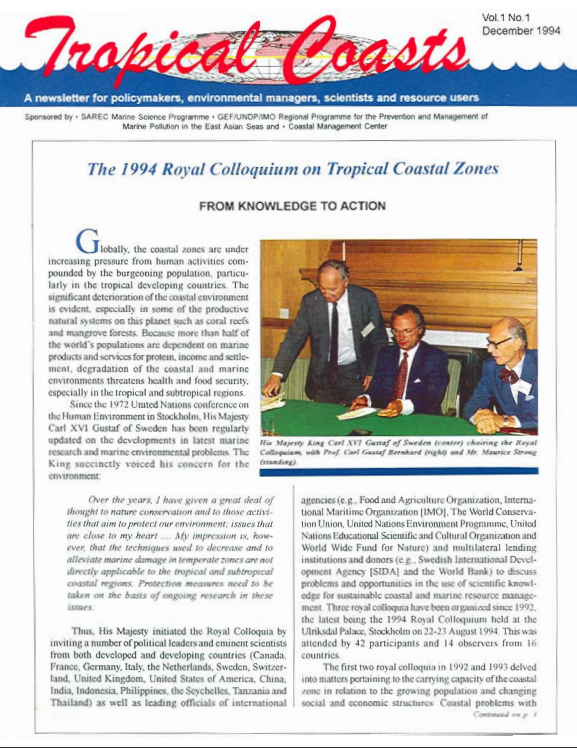
Breadcrumb
-
Environment and Enterprise: The Case of Malacca Strait
This issue of the Tropical Coasts discusses the Malacca and Singapore Straits, collectively known as the Malacca Straits. Under the UNCLOS, the straits are designated as international sea lanes. Being the shortest and most economical trade route between the high seas of the Indian Ocean and the South China Sea, it has become the busiest in maritime traffic. Since the end of the Second World War, numerous scientific studies have been conducted on the straits by the bordering littoral and user states as well as under the auspices of international agencies. Such studies covered coastal ecosystems, hydrodynamics, mineral resources, marine pollution, fisheries, and socioeconomic activities. In addition, legal and institutional studies have been conducted on the use of the straits for navigation and trade including the issues on oil pollution from ships backed by numerous local, regional, and international workshops and conferences. There is a need now for concrete actions to put into effect the many findings and strategies that are deemed of paramount importance for the best use and protection of the straits. Certainly, the implementation of the Malacca Straits demonstration project under the GEF/UNDP/IMO Regional Programme for the Prevention and Management of Marine Pollution in the East Asian Seas (MPP-EAS) is timely. The project not only deals with issues on the straits' use as international sea lanes but also the management of its resources and environment within an integrated, multi-users, and holistic framework as promoted under Chapter 17 of Agenda 21 as well as in the provisions of the UNCLOS and relevant international conventions.
-
The 1994 Royal Colloquium on Tropical Coastal Zones: From Knowledge to Action
This issue discusses the inception of the Regional Programme for the Prevention and Management of Marine Pollution in the East Asian Seas (MPP-EAS) by the United Nations Development Programme (UNDP) and to be executed by the International Maritime Organization (IMO). The MPP-EAS framework is built upon innovative and effective schemes for marine pollution management, technical assistance in the most strategic marine sector of the region, and provision of opportunities to attract other agencies and the private sector for funding and investment. The MPP-EAS is designed to control and manage marine pollution using a multidisciplinary and participatory approach that targets appropriate policy, institutional and technical interventions. This is also the first issue of Tropical Coasts which started as a newsletter of MPP-EAS. It aims to serve as a vehicle to widely disseminate news and information on ICM, marine pollution prevention and management and related topics, particularly relevant to the tropical and subtropical coastal developing countries; reaching out not only to scientists and managers but also to politicians; policymakers; the private sector, especially the industries; and the general public.

